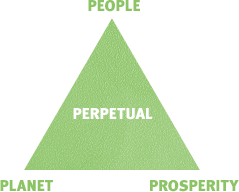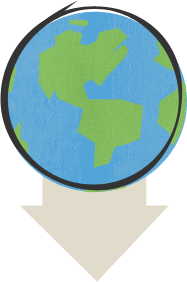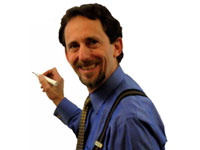This is the 80 Million People Project
Our Mission
Mobilize people to stop the advance of hostilities, bloodshed and violence occurring as an unintended consequence of our lifestyle behaviors, while contributing to a sustainable future for our children.
If everyone lived like us, it would take 5 planet Earths just to support us.
What will people do when they realize they can't have what we have?


Current US lifestyle requires 22acres/person.
At this rate, the earth could sustain 1.5B people indefinitely, without technology changes.
What do we tell the other 5.2B people?
The more people there are... the more important your decisions become. Sound counter-intuitive?
One person picking flowers in the park is different than
1,000,000 people picking flowers in the park.

Examine the Tragedy of the Commons, an essay by Hardin.
Self restraint and self governance and thinking about the welfare of others is required.
"I am important every day and each lifestyle decision I make counts. The "commons" must now be viewed as the biologically productive land and water on earth."
The system for feeding and fueling. The planet is increasingly interconnected.

- a. Population grows, poverty rises and people exceed the carrying capacity of their land. People grow hungry, not enough work, and unrest sets in.
- b. As an area grows economically, people's eating habits move up the food chain, consuming more meats, which requires increased grain and soybeans in a time when aquifers are being depleted, driving countries to set-up land deals in other countries to ensure grain production.
- c. We convert 29% of our grain harvest into ethanol, by law, diverting grain from food to fuel. The diverted grain could feed 340M people for a year, but instead, grain prices go up, making it harder for poor countries to buy our wheat, driving more people into hunger, increasing unrest.
- d. Our prosperity allows 11% of the population to use drugs, causing farmers to convert farmland into drugs and fueling thousands of deaths in drug wars while funneling money into groups of people who want to harm us.
Depleted resources, hungry people, and no jobs are a recipe for social unrest.

According to the The July 2010 "Failed States Index" by the Fund for Peace, the top 20 failing states included:
- North Korea
- Yemen
- Haiti
- Pakistan
- Iraq
- Afghanistan
- Sudan
- Chad
- Somalia
All currently in the news and their risk becomes our risk.
When you (and everyone else) throw away food, you are harming others.

Food is the resultant of a long supply chain and represents a complex global system that is ultimately depleting aquifers, clear cutting rain forests, introducing chemicals for crop and pest control, consuming fuel and consuming labor. When you and everyone else throws away food, you are harming others.
Food production is:
- depleting aquifers
- clear cutting rain forests
- discharging mountains of dung
- consuming fuel and labor
- introducing chemicals for crop and pest control
Get Involved
A message from the founder
I need help. We are attempting a massive-scale educational event that hinges on the creation of a Learning Map. There are two distinct arenas for helping; the online phase and the on-land phase. The online phase is the creation and mobilization of the Digital Activist Community. In this phase, 100 Digital Organizers with 600 friends are needed to send out this message. If half join us, we have a force of 30,000 in our Digital Activist Community. With almost 50% of them becoming Financial Promoters with a $5 investment we have enough money to launch the development of the Learning Map.
The on-land phase then begins. With Learning Map in hand the objective is to get 80 million people to participate in small group learning events. We need 2 million area coordinators and facilitators, with each facilitator engaging 40 people in learning events. This reaches 80 million people and if 60% choose to make small shifts in their lifestyle, we will make a positive contribution to peace in the world. Check out the graphic of the plan here.
Objective: Use Learning Maps to engage 80 million people in small group conversations exploring the linkages between our little daily choices and the true impact they have on our planet and people.
Mission: Educate and mobilize people to stop the advance of hostilities and violence occurring as an unintended consequence of our consumerism behaviors, while contributing to a sustainable future for our children.
My Vision when the project is complete: People take action through their daily choices. They understand that individual decisions become increasingly important in a world of 6 billion people. As a person goes through their day, they are reminded of the question, "What would happen if 80 million other people did what I just did?" Bathed the way I did, drank coffee, drove, threw-away items, left food or used energy the way I did? Maybe small decisions for me but when added to millions of other people, these decisions have global reach.
Goal: Inspire at least 2/3 of the people engaged (48M people) to make little lifestyle changes by year-end 2013.
Beliefs
- Counterintuitive: The more people there are, the more important my decisions become (one person picking flowers in the park is different that 1,000,000 people picking flowers in the park).
- There is a cycle that links my daily consumption habits to conditions in the world not conducive to peace.
- People outside this country consider "the American Dream" desirable.
- People's short-term self interests can be at odds with long-term group interests and common good.
- Resource control equals wealth and power, which can be divisive to peace.
- Vying for scarce resources can lead to hostilities and violence in a world of limited resources.
- Group restraint serves both the group and individual interests.
- I personally set conditions for peace.
- Instability in the world hurts me.
- My small choices when combined with millions of others have a huge impact.
Philosophy: A sustainable future, peace-in-the-world and resource utilization are linked.
About Alden B. Davis
Alden B. Davis is a specialist in regenerating institutions. 30 years of global expertise in industry, he designs, orchestrates and leads large-scale institutional change. His focus is financially-based change processes, business turnarounds, collaborative labor-management change, and leadership development. Alden is a contributor on WTIC Newstalk radio, a frequent conference speaker and workshop leader and has presented to numerous organizations including MIT, Boston University, Univ. of Puerto Rico, Goal QPC, IAM Placid Harbor, EO and the Business Council to the UN. Alden is degreed in Business and Engineering from Arizona State University, holds two patents and lives in Avon, CT.
Personal Purpose
To lead large-scale institutional change within business and social systems of increasing complexity in a way that establishes infrastructure capable of delivering sustainable performance improvements so that long-term institutional viability is ensured and increasing value is created for all stakeholders. Help build businesses that last.
Multinational Experience
- Brazil
- Canada
- China
- England
- France
- Germany
- India
- Ireland
- Italy
- Malaysia
- Mexico
- New Zealand
- Norway
- Puerto Rico
- Singapore
- Spain
- Taiwan



